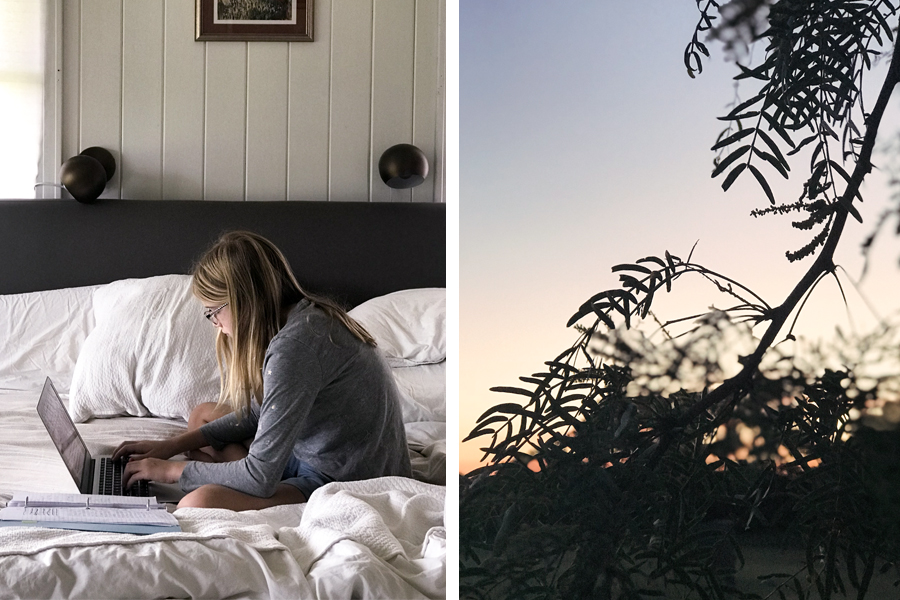
In an ideal world I would be able to keep up with all of the things my heart wants to do at the present, including writing here more often, and in an ideal world, you would not just peek through my life on a screen, or message/email questions about our days, but instead walk through our door and experience life in our home, most likely with something to eat or drink. You would find heaps of books everywhere––table surfaces, nightstands, bookshelves, and beds––but unlike a library where members read or work in quiet, steady noise and energy abound here. The conversations turn with the wind: a Latin translation, a comment about the weather or a recent movie, a favorite part in a book, a need for the dog to go outside, a grumble about Algebra, an encouragement about Algebra––who is responsible for dishes?––a reading lesson, an illustration, a child skateboarding through the room, a read aloud with the youngest, a nostalgic read-aloud moment for one of the eldest, a side-conversation born, a question about Logic, a blank look in response, a revisit to the lesson, a clay project––have you started your laundry? what about the clothes on your floor?––puppy snuggles, writing struggles, a study group, a walk outside––do you remember the book we read on Copernicus? You get the idea.
Perhaps the largest misconception of motherhood or homeschooling is its tidiness of time, experience, and learning. We ask one another what is the curriculum? Or how will you teach Chemistry? Or how do you know you have done enough? How do you know your children are learning? And so often my honest inward reply is I don’t know. I know some skills are learned best when repeated in small ways over a long period of time. I also know I grow bored of repeating small skills over a long period of time, so mindfulness and self-discipline apply to me just as much as my children, as do breaks in routine and the need for the outdoors. I know as modern learners, we have access to millions of books through bookstores, libraries, and apps, and as an undercurrent to all of these years of learning together, I want my children to experience books not just as something to consume, but also as tools that help shape us, our ideas, our curiosities, and talents. I know my children do not learn in the exact way I do, and some days that’s truly difficult. But it’s also a tremendous gift, a way to learn one another, to practice empathy and compassion first within our home and next outside of it.
Still, the hours of our days feel chaotic and symbiotic at once, a smattering of random conversations and stories and moments that all seem to connect together. I do not plan the hours in the same manner I did when they were younger. In previous years, it was helpful for me to block hours of our days for specific activities or studies: morning hour, math + reading, nature study, read aloud, outdoor play, quiet hours, etc. In those years, all of the children worked through similar blocks together and this made sense. I still do this for my youngest, but as my eldest children have entered the upper school years, they are organizing their hours more on their own. During the week, I loop through time with each, helping on their hardest lessons or the ones needing conversation, mostly Latin, Logic, Algebra, and writing/Literature, while reserving time for brief structured lessons with my youngest. With the elder ones, sometimes I work through lessons alongside them, most often in Logic and Latin. Sometimes I simply ask probing questions checking their understanding or dialoguing about something they’re reading. Sometimes I’m clueless and simply check their work with the answer key (always with math).
planning
Planning looks different now too. The eldest three, in middle or high school, each follow their own curriculum with a weekly seminar-style class day through Classical Conversations. I meet with each of them following their weekly seminar to talk through their plan for the week. The eldest, Liam, now in 10th grade, is responsible to chart his own path through his weekly work, whereas my 7th-grade daughter, Blythe, still has her work broken up with a weekly plan from her seminar tutor. My 8th-grade son, Burke, is right in between, planning much of his work on his own with my oversight. I still plan Olive’s lessons (4th grade) in 4-6 week increments, making book-lists and keeping a basket of books for her, and working slowly through lessons in math and reading and handwork projects.
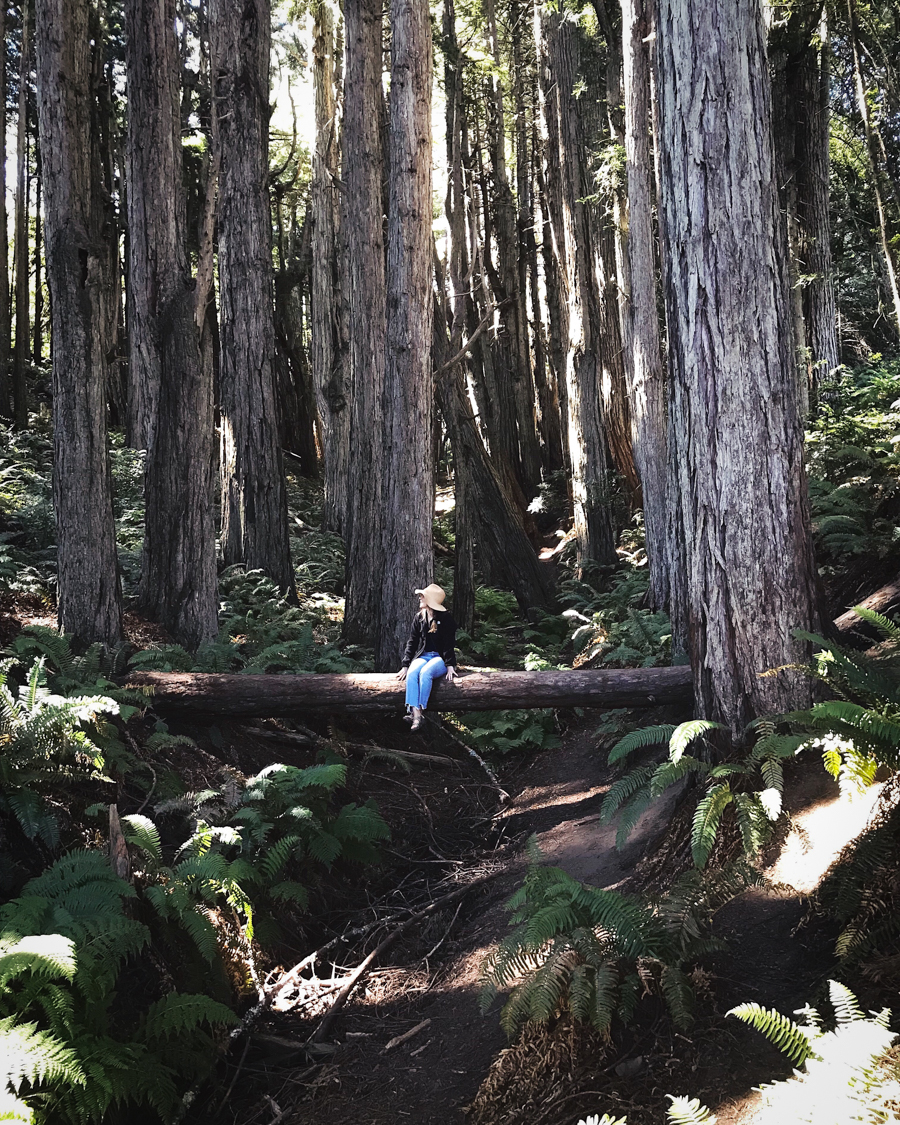
vision
In August, Mark and I went away to California for a time of rest and vision for our home. (I have more details on that trip finally coming soon.) I had been praying, searching for a word or theme to guide this upcoming year. I wanted something to cling to in the ebb and flow of learning, a light for the path ahead juggling so many different needs and micro-paths under one roof. I heard the word on a seven-mile hike that wove through the coastal hills into a canyon. It was magnificent. We paused for lunch among the Redwoods after a somewhat steep descent into a canyon. We wandered off-trail for a while afterward, only to realize we had to turn around and climb the canyon path again to return to the original path. There, in that moment of hiking upward, with my legs and lungs burning, I heard the word ASCEND. All at once I could envision a picture of our stage of parenting and homeschooling and the parallel to what I was feeling physically in that moment. Honestly, I feel the burn in our homeschooling right now, in motherhood, in my personal work. We are figuratively breathing hard, as our path grows more strenuous and steep, as our home grows into maturity. Some days, I want to throw in the towel.
Although each of my children are older and far more independent in their work, the way I need to parent/lead/nurture them requires so much rigorous attention. Not smothering. Not control. Not making their decisions for them. But watchful care as they carry more of their own weight, as they make more of their own decisions, as they come of age and climb into their adult years away from home. In that moment ascending, I could see that while everything feels harder and somehow more difficult, this is not the time to stop. We have always taken our decision to homeschool one year at a time, and this year is the same. We are moving forward, each of us climbing upward together. We pause and take care of ourselves. We slow our pace when needed and pay attention to our stamina, but our home is ascending just the same. I’m adapting as a mother to a different pace, stretched now between the high school years and grammar school years. This isn’t anything new. I am not the first. But it is a first for me. And holding all of these things, I have needed to shift my attention inward at home. I have needed to change our rhythm, to pull back from online spaces for a time, to recover hours that are needed elsewhere right now.
I write all of that to offer perspective, to offer a visual of your own path. Some of you have babies and preschoolers. Your figurative hiking should accommodate your home’s needs of short distances, flat, steady grounds, and sweeping vistas as often as possible for perspective. Like hiking with a young child, you may not go far, but you’ll have more time to notice the details, the grass, the flowers, the sky. Soak it up. There is such sweetness in the slower pace of the early years. Many of you will find yourself somewhere in between. I encourage you to take a moment to envision your parenting/homeschool journey as a hiking path. What would the terrain look like for you right now? How can you adjust your pace and intention accordingly?
Because practicals are still wonderful, here is a glimpse of our routines and rhythms right now, as best as I can write them. I have included first a weekly rhythm of how we sort out cleaning, meals, and the structure of learning (projects for the youngest, library trips, etc). This rhythm would be in addition to the regular daily work of home I hope it’s a helpful glimpse, but as with everything, keep only what might fit for your own home.

OUR AUTUMN RHYTHM + ROUTINE
weekly rhythm
Sunday | planning day: write lists and questions, gather books + materials, grocery shop; dinner: something simple (BLTA sandwiches, rotisserie chicken with salad; crockpot; soup)
Monday | laundry (girls); weekly afternoon library trip, copywork/narration/illustration and presentation prep for youngest; writing final drafts, weekly assessments, project completion for eldest three; dinner: vegetarian (curry, soup, pasta, stir-fry, etc)
Tuesday | weekly campus day; eldest three map out their week’s coursework after class and share their plan with me; dinner: community tacos
Wednesday | project/ handwork for youngest; laundry (boys); weekly study group for eldest; dinner: poultry (grilled, roasted, or pan-seared) + vegetables
Thursday | copywork/narration and project/handwork for youngest; laundry (mom); deep clean bathroom, wash floors, launder bath mats; dinner: random (leftovers, combine meals with friends/sister, etc)
Friday | bi-weekly math tutoring; monthly field trip; laundry (linens); dinner: Shabbat meal (fish, grilled or roast meat)
Saturday | family and individual rest/play/day-trip day; no work or school work; dinner: eat out/date night
daily rhythm
5am My Quiet Hours | quiet attention and intention toward my own person; meditation and prayer, reading, writing, and work (blogging, editing images, emailing, social media, etc)
7am Morning Wake-up | Mark wakes-up children (more challenging feat these days) while I go for a run or do a home workout and shower; breakfast, kitchen responsibilities, make bed, pick up clothes, wipe down bathroom
8am Morning Hour | gentle, intentional hour together to frame our mindset for the day, Scripture, read aloud, prayer, encouragement
9am Morning Block | My lesson-time with the girls.
Blythe and the boys begins their independent work, while I begin lesson work with Olive—reading lesson and practice, read aloud, and copywork/ narration or hand project. Mid to late morning, we swap. I often check-in with the boys to make sure they’re on task. Wink. Olive begins her independent work in math and memory work and I work through Latin with Blythe and talk through whatever she needs help with in other studies, often revising her writing or science research with her.
NOON Lunch | eat, check texts + social media, go for a walk, etc.
1pm Afternoon Block | My lesson-time with the boys.
Blythe finishes her afternoon work independently, and Olive plays. I check in with both boys about their morning work and how they’re doing with their day. They each take breaks to play or go outside as needed. I work through Latin and Logic lessons with Burke, or possibly help him find news articles for his current event topic, resources for his science research, or writing. With Liam, our time is often more discussion. He really is doing more self-instruction and research, and so my role is shifting toward asking more questions about his readings, helping guide his writing and analysis, listening to what he’s learning about the artists and composers he’s studying and his Biology modules, and being a place of accountability for the quality of his work. Our time each afternoon is really more my searching out his understanding of what he’s doing on his own. He takes weekly/bi-weekly assessments in Algebra, Biology, and Logic which help me find areas we need to work on together, too.
4pm Clean Up | We put away our work and clear tables. They play outdoors or catch up with friends, and I catch up on whatever I need to online, or listen to a podcast or music, often with a celebratory glass of wine.
5pm Dinner Hours | Prep and eat together. These are the hours I begin to slow down again and turn inward, so I’m happy to send the kids out and chop or prep on my own, when possible.
7pm Evening Routine | Mark and I often take the dog for a walk together to connect. The kids finish kitchen clean-up, begin showers, and hang out together.
9pm Bedtime | The girls have lights out at 9pm, and the boys at 10pm. Ideally, I’m in bed with a book at 9p, but that doesn’t always happen. I’m often happily asleep by 10pm.
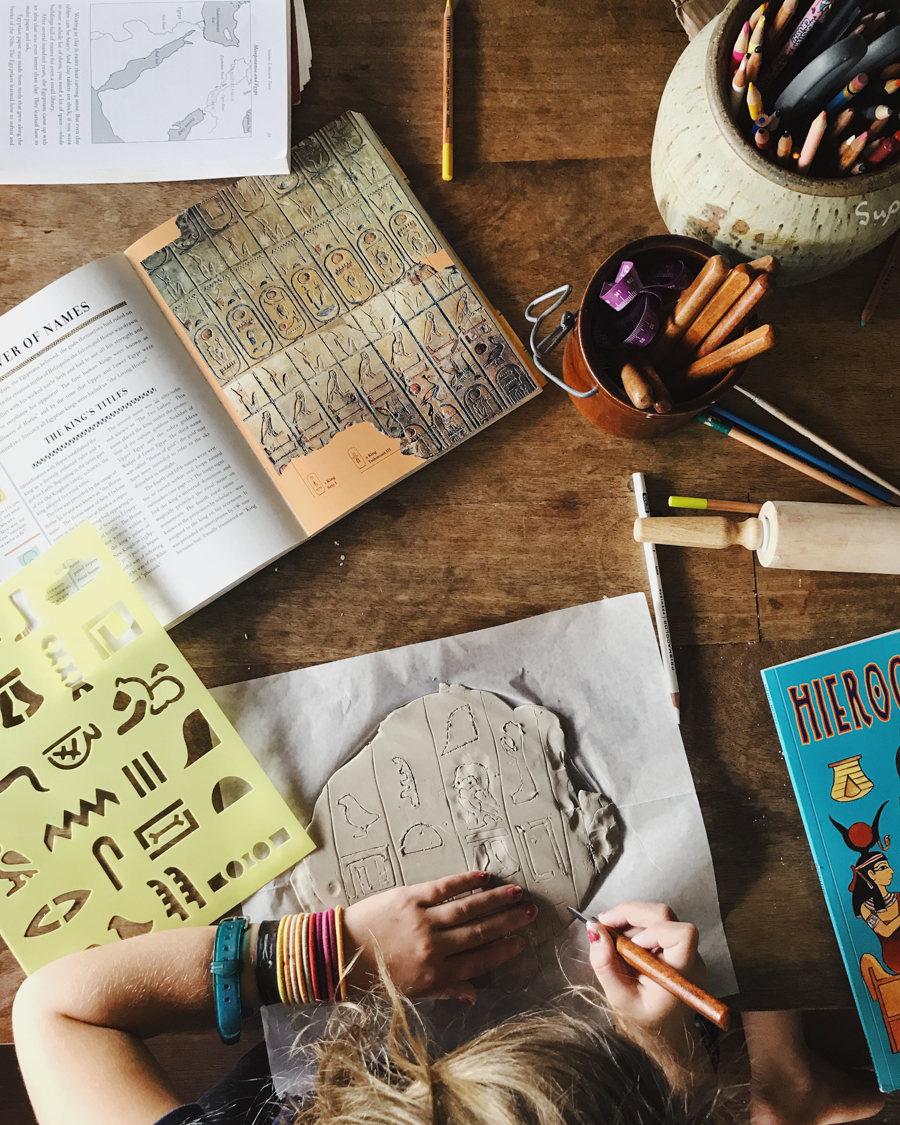
grammar school resources (Olive)
reading | Olive is still growing as a reader, and we are pursuing some testing this Autumn for extra help and clarity. In the meantime, we are working through level four of All About Reading, a wonderful resource, especially for students who are busy-bees or who struggle with letter recognition and pulling together sounds.
history | Olive and I are studying Ancient History this year, using The Story of the World as our spine text, adding in many read-aloud books and hand projects from this activity guide. I strongly considered using Beautiful Feet Books Ancient History, since I love their studies and book choices so much, but ultimately decided she might not be quite ready for that yet. I’ve gathered read aloud ideas from various places: online searches, the library, the activity guide, Tapestry of Grace’s Year 1 reading list, Beautiful Feet Books.
Classical Conversations Foundations Program | This year, we opted to return to CC as an entire family, instead of just dropping off for the Challenge class. The younger programs require the parent to remain on campus, which has been a huge shift for me. The Foundations program is only 24 weeks and leads the children through playful songs and activities to help them memorize facts in six subject areas, with an art/music block and science experiment. Olive loves it! And I enjoy that she’s having regular science experiments again (my weakness!) and review of math facts and other building blocks of learning. Of course, her favorite part is being with people in her own weekly class–it fills her extroverted spirit right up.
grammar, science, and other things | Both science and grammar are organic subjects for her right now. We talk about it in her application or curiosity or during discussions with the elder kids. She’s memorizing terms and practicing experiments with CC, and that helps for keeping things simple for now. She’s curious about writing stories, so I’m going with her interest and building some mechanical and grammatical discussion into her own work. I am focusing on small details of quality penmanship and am hoping to begin spelling again with her later this fall. We love All About Spelling and English Lessons Through Literature and highly recommend both for those of you looking for more spelling or grammar instruction.
hands-on learning | I imagine all children enjoy hands-on learning, but some children seem to learn best by experimentation, by trial and error, by doing. This is true of Olive. So I’m giving plenty of room for her to be in the kitchen, toying with her own recipes, experimenting. I also offer her old worn-out clothing to cut up for sewing or making, as well as art materials for building and creating.

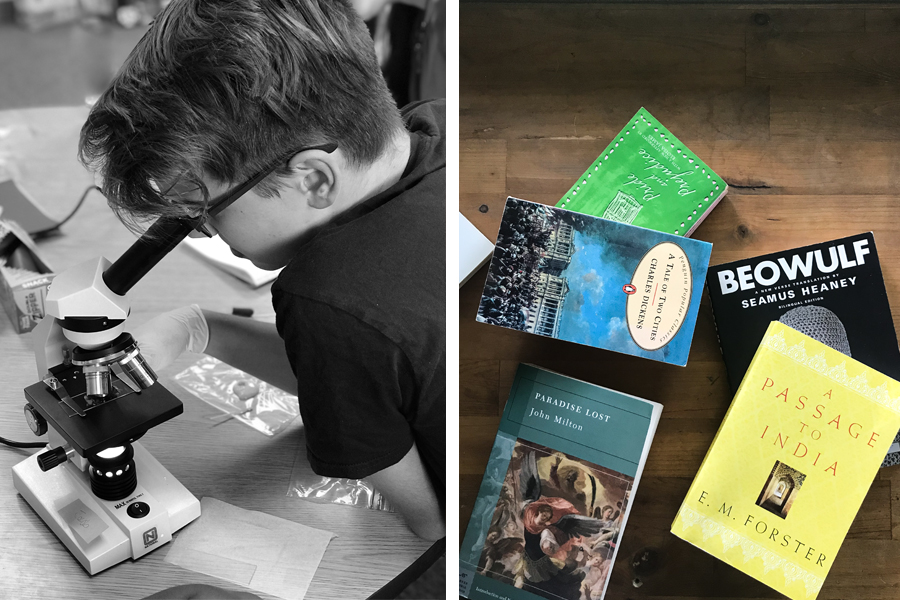
upper school resources
Classical Conversations Challenge Curriculum | As I’ve mentioned before, the three eldest are in the Challenge program with CC, a complete 30-week faith-based classical curriculum for grades 7-12. It is intense and has required an adjustment for me as a parent, but a worthy one since my children love it so much. They each have a weekly seminar class, and for the most part, this directs their reading and studies for the academic year. The other 22 weeks in the year are used for self-directed reading and projects, holidays, play, entrepreneurship, etc.
math | We have always used and still use Saxon Math, adding the DIVE Math videos at Math 5/4 and up. There have been times I’ve used other curriculum or workbooks to support or reinforce a year. I know Saxon Math is polarizing. Homeschooling parents generally love or hate it, and that’s okay. I’ve wrestled with it myself and made peace. Haha! Truthfully, there are many wonderful options, but I encourage you to find one and try not bounce around each year. There’s more opportunity for holes since each curriculum builds uniquely in its own style. Other options friends of mine use and love: Math-U-See, Teaching Textbooks (often a semester or entire grade level behind, so expect to level up), Singapore Math, Kahn Academy (it’s free!)
science | Liam is studying Biology this year with Challenge 2 (10th), including eight formal lab reports and weekly science experiments. Burke is studying scientific origins and the history of astronomy this year in Challenge B (8th), researching a new scientist chronologically each week, writing a weekly essay and illustration/model to present to his class. Blythe is learning skills in scientific research this year in Challenge A (7th), beginning with the natural world this fall–a perfect segue from our nature studies last year–creating citations and scientific drawings. She will participate in science fair later this fall and transition to a study of human anatomy in the Spring.
grammar | The Challenge program uses Henle Latin to introduce students to the grammar of language. We’re learning about the patterns of sentences and the roles of nouns and how to recognize them by their word endings. I know Latin studies can sound a bit pretentious, but we have had so many wonderful conversations from it about history and culture, plus similar vocabulary words in English and Spanish. We’re rolling with it. Blythe is in her first year, so she will work through the first quarter of the Latin I text with me. Burke is working through the first half of the Latin I text, and Liam is working through the Latin II text this year, heading toward translating Caesar in the Spring.
reasoning | Blythe is learning to identify arguments this year, reading and separating main points from supporting ones, and later this year, she’ll learn about logical fallacies. Burke is studying informal logic and formal logic this year. I am working through this with him and sometimes both of our heads hurt, but he’s enjoying it! Liam is studying formal logic again this semester and reading through Plato’s Gorgias in the Spring.
literature + composition | This, of course, is my personal favorite. Books and writing. The Challenge A + B reading list feels a bit light for avid readers, in my opinion–ten novels for Challenge A and five novels and fifteen to twenty short stories for Challenge B–but reading more slowly allows more opportunity for them to internalize the novel and think more critically about it. Their writing is also quite simple at this point, instructing them in the basic structure of a persuasive essay and thesis in a very simple way using The Lost Tools of Writing ––a program I highly recommend for older writers! They build elements of writing into their work with each novel they read. Blythe is reading through ten Newberry novels this year, some for a second or third time. Burke is also reading other Newberry novels as well as short stories in the Spring, to begin discussing literary elements and gain exposure to more difficult writing. He also will be writing his own short story in the Spring, something I know he will really enjoy! Liam is reading 18 pieces of British literature this year––some of my personal favorites––so I’m enjoying hearing about his experience with these works. His writing is growing up a bit this year, learning to evaluate literary elements more deeply and form analytical comparisons. It’s certainly stretching!
debate | Blythe is memorizing the geography of the world, and the names of every country within it this year. The goal is to be able to draw the entire world from memory, orienting them to the locations of things happening in the world as they begin to pay more attention to politics and cultural current events. Burke is researching current events on major topics prompted by his tutor for their weekly class discussions. My recent favorite was the use of tablets in lieu of textbooks in the classrooms or learning environment. So pertinent! He will write and present a speech to Congress later this Autumn and spend the rest of the year in preparation for his first Mock Trial at the end of the year. Liam will continue with team debate this year, but is also studying Western Cultural History through art and music. This has been an intense strand for us but also a delight, as there’s so much to see and hear and experience.

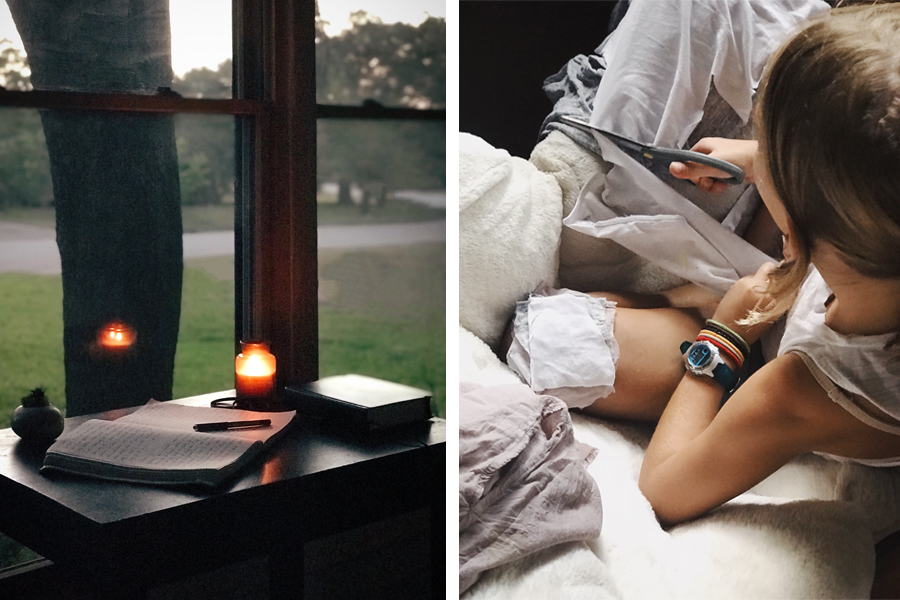
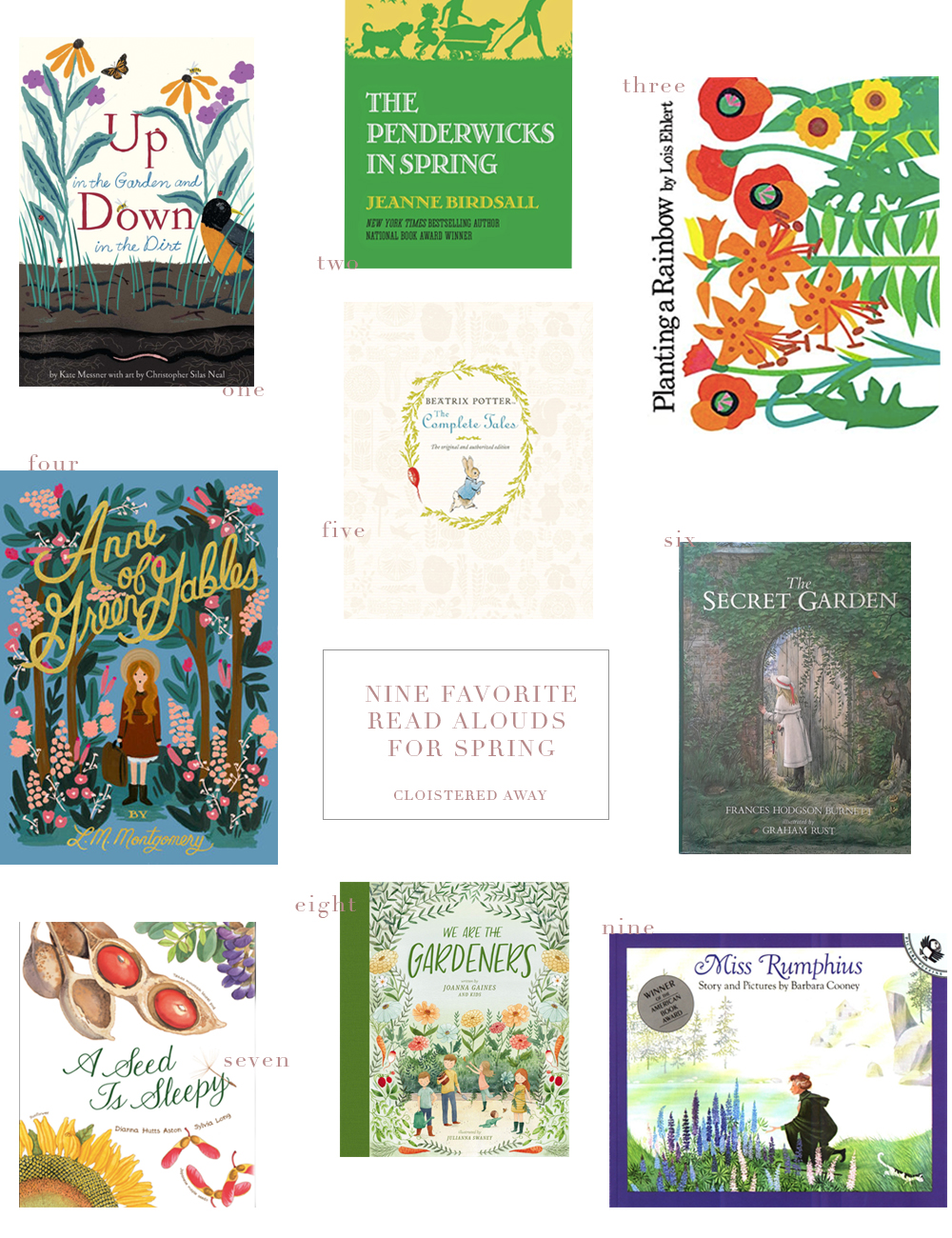
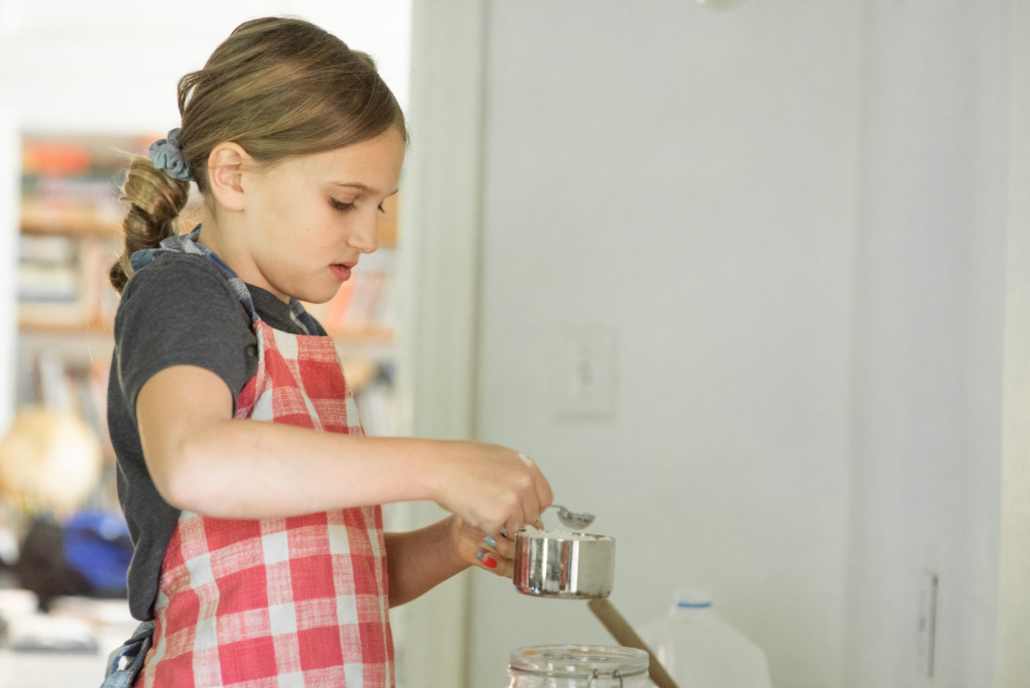
Comments
This is all so good ❤️
Bethany I would love to know your thoughts on when a prime age to step in to CC is. My daughter is at home doing kindergarten and I have been planning on pursuing a Charlotte Mason education but have recently become intrigued by CC. It does seem awfully rigorous for such little people (though I will admit I don’t know much about it yet) but I can really see the benefit as kids get older. Is it something I could get away with waiting on? Does it take over childhood so to speak for a five year old? I appreciate your thoughts and as always, thank you for taking the time to share here! Always an encouragement and resource!
Like so many things on this journey, Stacey, it depends on the home and community and needs of the children. On an academic level, enjoying a Charlotte Mason education at home during the grammar years and moving into Challenge is still very manageable. For families who crave clear structure and community, Foundations and Essentials programs are perfect, whereas families who feel more comfortable creating their own structures for learning or who have strong community elsewhere may prefer to wait. There have been years CC has been exactly what my children or I have needed, and then other years we needed something different. I know that’s not really a clear answer, but I really do think it depends. Have you visited a campus near you?
I love this post! I started CC this year with the oldest two of my four children (they are abecedarians, ages 4 and 5), and it can be so overwhelming and the process can be difficult to grasp if, like me, you haven’t received a classical education. Seeing how far your older children have come and what lies ahead for them is so encouraging to me! All of the more experienced parents in our community keep reminding me to trust the process, and in reading your post, it’s clear that the rewards lie ahead. As a new homeschooling mom, I find your blog to be such a source of beauty and encouragement. Thank you for sharing!
Thank you so much, Jayme. What I would encourage you in those little years is not to rush through them. There is so much difficult, focused work in the older years, and I’m so grateful now (as are they) for all the years of play and fluid blocks they had as little ones. As cliche as it is, do enjoy those curious, playful years together. xx
I love learning from other people’s routines! We are currently in a co-op that uses IEW and Writing and Rhetoric for writing and we do grammar with them too. And then The Story of the World for a history spine and well as geography. And of course lots of extra pictures books! Then we do Elemental Science, which is cool because they do it across all grades, so we’re on the same topic but different levels. A lot less juggling. It’s been a challenging school year because none of my kids are independent, and my 3rd grader may be more independent before my 6th graders due to their dyslexia, which means they need me more than an average 6th grader would. I was interested to read how you “juggle” the one on one time all your kids need. That is definitely my tricky part!
I love anything that requires less juggling, especially in the grammar school years. Happy new year to you all!
Hi Bethany! I loved reading through your post. I have a question regarding CC. Do you feel like entering CC with older students, that they were prepared enough for it without having attended Foundations in the younger years? I’m really intrigued by the idea of waiting until middle school. I figured that if we hadn’t participated in the younger years that it would be too challenging to enter as older students…
I suppose so much depends on the children and the campus, but I believe yes. Both programs (F/E and Challenge) are quite different, and while there may be a few “learning pegs” that my children didn’t know when they entered the Challenge levels, they have learned them quickly as they’ve needed to. If your children know how to read and write words into sentences and work hard, they will be just fine regardless of where they were during their early years, in my opinion. I hope that helps!
I can relate to so so much of this! Our children are 10, 12, and 14 and in CC as well. Thank you for sharing your routine hours, ours are similar but I’m always eager to refine and learn where I can be more efficient or we can be better served. Totally relate to the trail of conversation changing rapidly!! And the picture of hiking and ascent as it pertains to this season is vivid and so appropriate. Thank you friend!
I’m so glad to hear you resonated with this, Monica. I also enjoy peaking into other routines, wondering if any parts might works for our own. And that image of us ascending has returned to me again and again these last few weeks.
I enjoy reading your posts a lot. This one is my favorite as it helps to assess our schedule, days, and life as a gomescgoolung family with CC. I would love to ask though if any of your children are involved in other activities (piano, sports, dancing, etc)?. And how do you juggle this? Or if they do not, how do they/you feel about it?
Thank you, Olga! Our children have done various extras over the years but this year (as of now) they are not. During periods of doing more activities, it has meant more school in the car or during a sibling practices or later meals, etc.